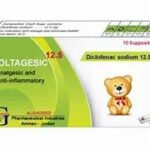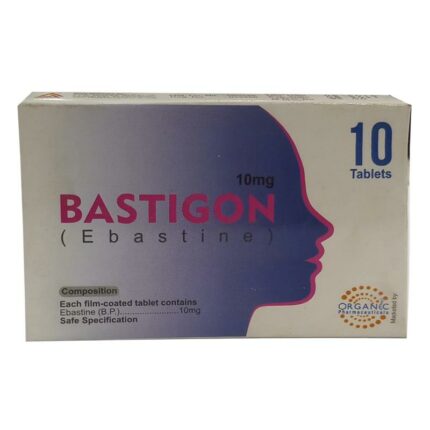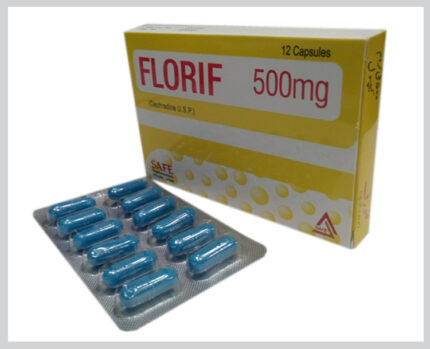Description
Voltec 100mg contains Diclofenac Sodium, a powerful non-steroidal anti-inflammatory drug (NSAID) that helps relieve pain, swelling, and stiffness. It works by blocking enzymes (COX-1 and COX-2) that produce inflammation-causing chemicals in the body. It’s commonly used for joint pain, muscle injuries, back pain, and menstrual cramps.
Primary Uses
-
Arthritis (rheumatoid, osteoarthritis, ankylosing spondylitis).
-
Muscle or skeletal pain due to strain, trauma, or overuse.
-
Gout flare-ups.
-
Migraine and menstrual cramps (dysmenorrhea).
-
Post-surgical or dental pain.
How It Works
Diclofenac reduces prostaglandin production — the chemical responsible for pain signals and inflammation — resulting in faster pain relief and improved mobility.
Side Effects
-
Stomach discomfort, acidity, or indigestion.
-
Headache or dizziness.
-
Fluid retention (swelling).
-
Rare: Ulcer, skin allergy, liver/kidney strain.
Warnings
Pregnancy: Not recommended.
Lactation: Use only if advised.
Driving: May cause dizziness — avoid if affected.
Alcohol: Avoid — increases stomach irritation.
Precautions
Use cautiously if you have a history of gastric ulcers, heart disease, kidney or liver impairment. Long-term users should undergo periodic medical monitoring.
Contraindications
Do not use if you have:
-
Allergy to Diclofenac, Aspirin, or NSAIDs.
-
Active stomach ulcer or intestinal bleeding.
-
Severe liver/kidney dysfunction.
Doctor’s Overview
Dr. Haseeb Malik (Orthopedic Specialist):
“Voltec is commonly used for joint and musculoskeletal pain due to its fast anti-inflammatory action. It helps restore mobility in arthritis or injury-related swelling. However, individuals with gastric or cardiac sensitivities should use it under supervision.”
FAQs
Q. Can I take it for back pain or toothache?
Yes, it’s effective for both general body pain and joint pain.
Q. Should I take it with food?
Yes, always take it after meals to protect your stomach.
Q. Is it stronger than Ibuprofen?
Yes, Diclofenac is generally more potent and longer-lasting.
Q. How long does one tablet last?
Relief typically starts within 30 minutes and lasts 4–6 hours.
Disclaimer
This profile provides general product information based on standard pharmaceutical references. It is not a substitute for medical advice. Always consult your doctor or pharmacist for personalized guidance.






Reviews
There are no reviews yet.